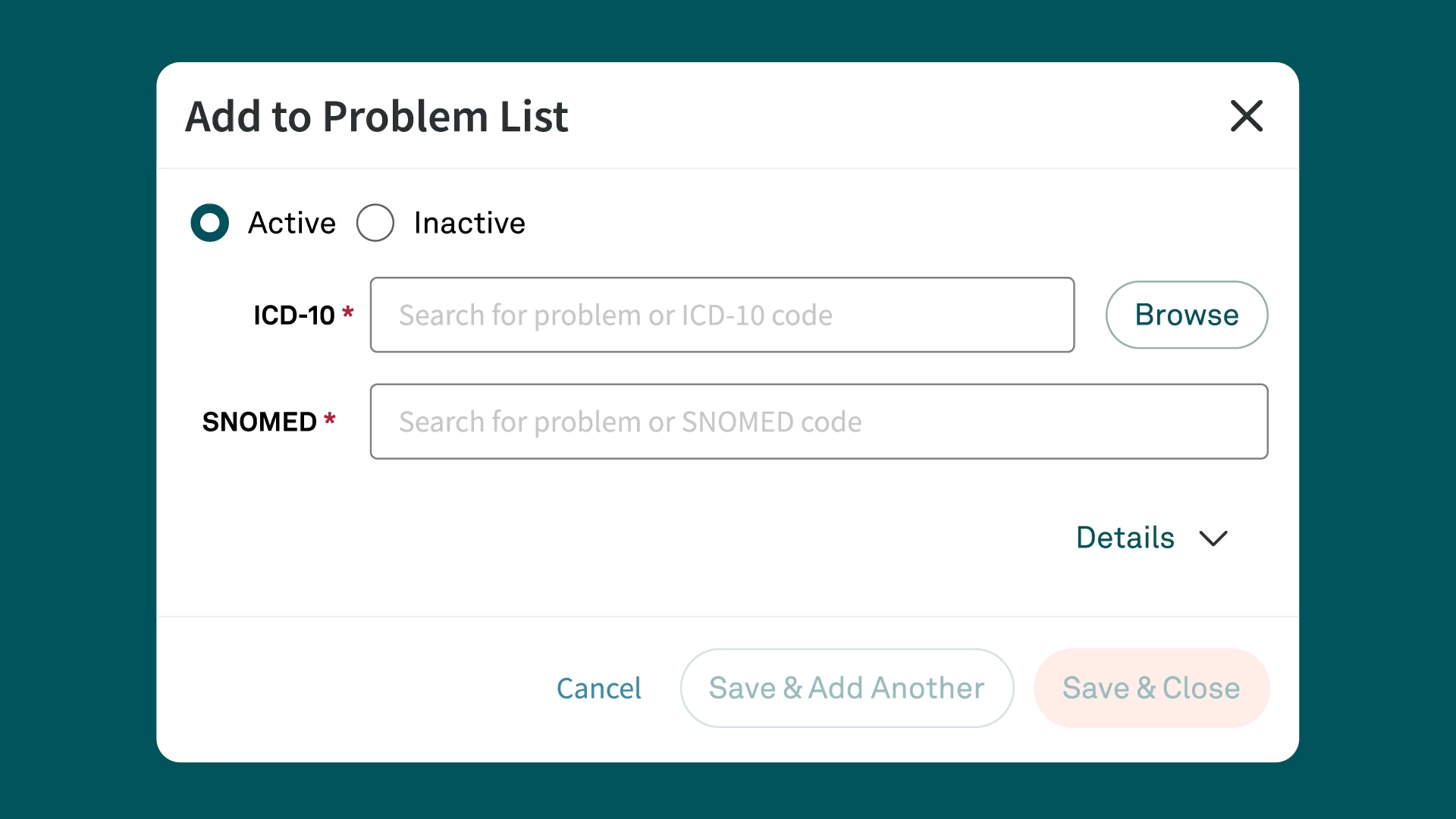ICD-10 Code R79.89
Other specified abnormal findings of blood chemistry
What is the code R79.89?
The ICD-10-CM code R79.89 stands for "other specified abnormal findings of blood chemistry." Healthcare providers and medical coders use this code to denote abnormal blood chemistry results that do not fall under more specific categories.
Detailed description of R79.89
R79.89 is a diagnostic code used to describe abnormal findings in blood chemistry that are not specified elsewhere. This code often applies when blood tests reveal blood chemistry irregularities that do not fit into more specific codes, such as abnormal level of blood mineral, abnormal coagulation profile, or elevated C-reactive protein (CRP). It is important to note that R79.89 is a descriptive code, indicating an abnormal finding rather than diagnosing a specific condition.
Symptoms commonly associated with R79.89
Since R79.89 covers a broad range of abnormal blood chemistry findings, it has no specific symptoms directly associated with it. The abnormal results could indicate various underlying conditions, which may present with a wide array of symptoms depending on the affected blood component.
Related and similar ICD-10 codes
Several ICD-10 codes are related to R79.89 and may be used in conjunction with or as alternatives to this code, depending on the specific abnormal finding. Some related codes include:
- R79.0: Abnormal level of blood mineral
- R79.1: Abnormal coagulation profile
- R79.81: Abnormal blood-gas level
- R79.82: Elevated CRP
- R79.83: Abnormal findings of blood amino-acid level
Each of these codes provides more specific information about the type of abnormal blood chemistry finding.
Appropriate usage of R79.89 for billing
Use R79.89 when the abnormal results do not fit into more specific categories. It is important to document the diagnosis to support the use of this code.
Instructional guidelines with R79.89
When documenting and coding with R79.89, adhere to the following guidelines for accurate billing and coding practices:
- Ensure that the abnormal blood chemistry findings are documented in the patient's medical record.
- Use R79.89 only when the abnormal findings do not fall under more specific ICD-10 codes.
- Avoid using R79.89 for conditions that have a more precise code available.
Common pitfalls in coding with R79.89
Several common pitfalls can occur when coding with R79.89:
- Lack of specificity: Using R79.89 when a more specific code is available can lead to inaccurate coding and potential billing issues.
- Insufficient documentation: Failing to document the abnormal blood chemistry findings can result in claim denials or audits.
- Miscoding of test results: Incorrectly coding blood test results can lead to using R79.89 improperly.
Key resources for R79.89 coding
To ensure accurate and efficient coding with R79.89, consider using the following resources:
- ICD-10-CM Official Guidelines for Coding and Reporting: These guidelines provide comprehensive instructions for using ICD-10 codes, including R79.89.
- Centers for Medicare & Medicaid Services (CMS): CMS offers resources and updates on coding practices, including webinars, manuals, and bulletins, for accurate ICD-10 coding.
- Professional coding organizations: Organizations like the American Health Information Management Association (AHIMA) and the American Academy of Professional Coders (AAPC) offer educational resources, certifications, and support for medical coders.
- Professional coding reference books and software: Reference materials can support medical coders and providers with detailed information on code usage and classification.
These resources provide detailed instructions and updates on coding standards and practices.
Conclusion
R79.89 is an ICD-10-CM code that describes other specified abnormal findings in blood chemistry. By adhering to coding guidelines and using key resources, healthcare providers and medical coders can help ensure precise and effective use of R79.89 in their billing and documentation practices.
Simplify ICD-10 code documentation with Tebra
Tebra’s EHR+ gives you quick searches and Systematized Nomenclature of Medicine (SNOMED) field names for efficient code documentation. Plus, Tebra automatically saves ICD-10 to SNOMED mapping for future searches, streamlining your workflow.

Discover how Tebra helps providers effortlessly document health-related issues and conditions in this detailed post.
Similar Codes
Stay Ahead with Expert Healthcare & Billing Insights
Get the latest industry updates, financial tips, and expert strategies — delivered straight to your inbox.



